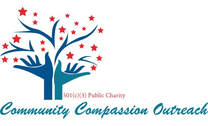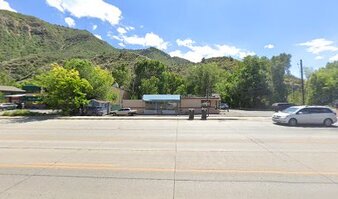|
HHi SIPs House for the First VILLAGE OF HOPE
255 East 11th Street | Durango, CO 81301 Saturday, May 19, 2018 from 9:30 AM to 11:30 AM (MDT) Anxiously waiting until Thursday, April 26th at 7:30AM when we attend the final class to hear two presentations on the engineering design and practice of homeless shelters, to include recommendations Disassembled components of HHi House built by engineering design students is waiting for a site Insulated panels were fabricated by the junior class of Fort Lewis College engineering design students under the tutelage of Don May, P.E., Ph.D., professor of the Engineering Department. PVC tube connectors and tube framing & insulated panels lay in wait for relocation if required by the homeless.
CCO, in collaboration with Humanitarian House International and FLC, is raising funds to build the first sanctioned Homeless Village in La Plata County, Colorado. The plan is to start with 10-15 units of the 196-square feet of space. Re-Designed HHi House The re-designed HHi House remains portable. HHi Architect Stuart Ohlson decided to eliminate PVC tube connectors and tubing for the frame with insulated panels. In March, 2018, revised plans creates a more substantial space in which the HHi House will accommodate a couple with two children. The flexible spacs allows for two bed spaces with each containing one bunk bed, ideal for singles to share the 196-square foot HHi House. The option to have one bed space created for a couple offers great flexibility and may include underbed storage. We expect the Fort Lewis College Engineering Design Report to include recommendations for plumbing each unit with water, power and sewage. Those features will create self-sufficient housing units which may become an insulated permanent house for over ten years. Portable for relocation and reassembly Imagine a village of HHi Houses for individuals and families experiencing homelessness, with a community building for human and health services that will be available to ensure case management. Residents will be able to live in the village for as long as it is necessary to receive continuum of care for mental illness and drug dependencies. A program to assist residents to enter permanent supportive housing is being developed. Background Colorado’s lack of affordable housing and wages do not keep up with cost of living, which impacts rural communities like Durango. Low vacancies of rentals and high median area rent rates in a growing population is preventing low income workers from entering affordable housing. People who have part-time jobs are camping in nearby forest lands, where the current drought is cause for fire concerns. Moreover, there is an unknown number of people sleeping in vehicles, couch surfing, sharing rooms, or sleeping in uninhabitable spaces in this county. Although Permanent Supportive Housing for 9 people is planned for Durango by a developer of affordable housing in the next year or two, our organization estimates over 30 individuals would like to leave camping in the woods for a tiny house with running water and power. Community Compassion Outreach, Inc., believes it has found a shelter for the homeless in our community. We are challenged by doubting Thomases and an uninformed public who have negative views toward people living unhoused. CCO is creating educational materials to address myths and to replace those myths with FAQx. Durango is now home to many individuals and families who have left the big cities for rural, small-town living. We believe we should care for people who have made wrong choices. We believe that every human being is deserving of a safe, lockable, warm and dignified shelter—regardless of race, age, sexual orientation, religion, criminal past, mental or physical disabilities, or ideology. Call for volunteers! We have day work projects and other community services to assist individuals and families to survive and exit homelessness. Contact Mrs. “Donna Mae” Baukat for further information. We welcome your generous Gift! Durango Christian Church is a 501(c)(3) Religious Organization. At this time, we are accepting donations made payable to DCC/CCO at this online link HERE. Simply put—Homelessness describes a condition in which a person is without housing. CCO has learned to use a kinder phrase for people living on the streets or in makeshift camps.
We use the phrase “people who are experiencing homelessness” — they are not “homeless people”. A person who is without shelter or unhoused may be temporarily or chronically experiencing homelessness. Durango Christian Church hosted its first public forum ENDING HOMELESSNESS on Saturday, February 17, 2018.
KEYNOTE SPEAKER - Donald W. Burnes, PhD., of BURNES CENTER ON POVERTY AND HOMELESSNESS at the Graduate School of Social Work, University of Denver. Don is also a Scholar-in-Residence and an Adjunct Professor at the School. A local philanthropist concerned with the issues of homelessness and housing, he serves on the State Interagency Advisory Group on Homelessness for Governor Hickenlooper and served in a similar position for Governor Bill Ritter. He was a member of Denver’s Road Home Commission and the Colorado Housing and Homelessness Funders Collaborative. He has served on the Adams County Blue Ribbon Commission to End Homelessness; he has chaired the Evaluation Committee of Denver’s Road Home and been on the Board of Directors of the Metro Denver Homeless Initiative. He has been part of the decade long process of conceptualizing, implementing, and evaluating Denver’s 10 Year Plan to End Homelessness. ENDING HOMELESSNESS: Why We Haven’t, How We Can is the title of the book Co-edited by Dr. Burnes and David DiLeo. Burnes will present brief history of homelessness with evidence-based practices to end homelessness, economic injustices, lack of affordable housing ... with the EMPHASIS on HOW WE CAN End Homelessness. Watch DurangoTV.com Interview—Can We End Homelessness? We are grateful for our sponsors!
Thank you Volunteers and Forum Planning Committee Members! You helped us create a very informative event; and, mind boggling data of homelessness has brought new organizations to the goal of planning a Village for the Homeless in our area. The following are YouTube videos played at the forum during breaks: HAWAII’S HOMELESSNESS WILL THIS WORK FOR TRANSITIONAL HOUSING (Fort Lewis College Engineering Design Study of a homeless shelter STEERING COMMITTEE PLANNING A VILLAGE FOR THE HOMELESS Steering Committee: Planning A Village For The Homeless We are accepting volunteers for a Steering Committee. We are planning a village for the homeless in Durango, La Plata County in southwest Colorado. Please contact us if you have some hours to establish goals and educational material on Homelessness. Thank you, BIG AGNES!
Big Agnes! We appreciate the generous donation od several sleeping bags and mats! Shelters are already full to capacity! Winter in Durango has approximately 40 persons in makeshift tents who camp the arroyos and the woods. For those individuals who call Durango 'home' there is a high risk of hyperthermia and fatality. One life lost is enough--two lives is unconscionable! We don't want another person to die for lack of warmth and the dampness of clothing through inadequate sleeping bags and tents. Your generous Tax Deductible Gift of $10 or more will assist in the purchase of winter camping gear. We need approximately ten (10) each of camping sleeping bags, tents and tarps rated at 10 to SubZero DegreesF! Low-income people face significant barriers when accessing FEMA’s transitional shelter assistance...
According to the National Low Income Housing Coalition (NLIHC), after a disaster low income people face significant barriers “when accessing FEMA’s transitional shelter assistance.” Disaster Housing Assistance Program (DHAP) helps the most vulnerable individuals and families after a disaster. ...“DHAP is designed to help those low income households that face significant barriers accessing FEMA’s tran-sitional shelter assistance. Hotels participating in FEMA’s transitional shelter often charge daily “resort” fees, require security deposits, and require that displaced households have credit cards – all of which are barriers for low income households that have already depleted any savings that they may have had and that are often unbanked or under-banked. Some hotels have turned away displaced families with hotel vouchers. Without DHAP, displaced, low income families often have little choice but to move into uninhabitable or overcrowded homes, stay at shelters, or sleep in their cars or on the streets. There are numerous accounts of individuals that were unable to access FEMA’s transitional housing assistance that later needed emergency hospital care after returning to mold-infested homes. Families have set up “tent cities” because they had no place to go.” — NLIHC Solutions Tiny homes have been used for many years in camps for the homeless in parts of the U.S. — however, in an emergency, Tiny Homes cannot be set up as rapidly as needed. The HHI House for the Homeless has many advantages for transitional & emergency shelters. Community Compassion Outreach Program (CCOP) and Humanitarian House International, in collaboration with Fort Lewis College Engineering Department is seeking a viable solution. Read more. Contact us for details of Fort Lewis College Engineering Design & Practice (Engr 315) Spring 2018. |
Our MissionOur Mission is to assist persons to survive and to exit homelessness with a viable housing solution!. Archives
October 2022
Categories |
Since December 15, 2023, we are at:
21738 US-160, Durango, CO 81303
Mailing Address: 10 Town Plaza #315, Durango, CO 81301
21738 US-160, Durango, CO 81303
Mailing Address: 10 Town Plaza #315, Durango, CO 81301
970-236-2313
Ph | Voicemail
9:00am-5:00pm
Meet staff by
APPOINTMENT ONLY
E-Mail: [email protected]
Hours
In-Person Meetings by Appointment Only:
- NEW! SAFE TALKS IN RECOVERY (STiR is a voluntary group meeting)
- Tuesdays, Wednesdays & Fridays - 9:00 am to 4:30 pm RESST Program with snacks, beverages and lunch provided -- We close our doors at 4:30pm to allow our staff to leave at 5:00pm. Thank you for your patience!
- SATURDAYS -- COFFEE & CONVERSATIONS is moved to our new location: Doors open 11am to 2pm with hot lunches served at Noon to 2:00pm -- we will close our doors at 1:30pm to allow our volunteers to clean up. Thanks for your patience!
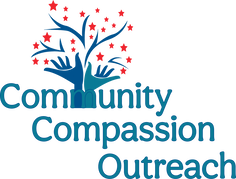
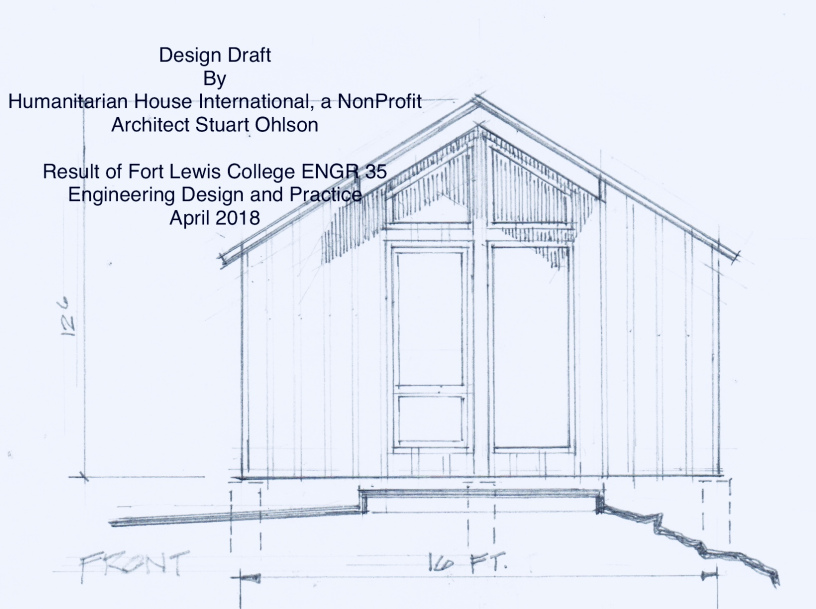
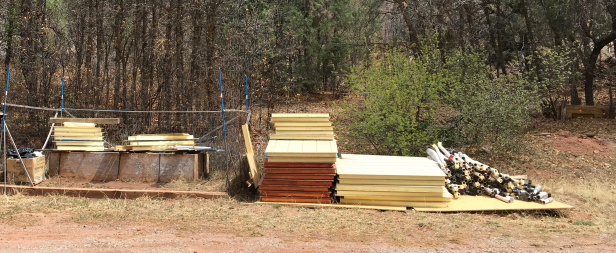

 RSS Feed
RSS Feed
